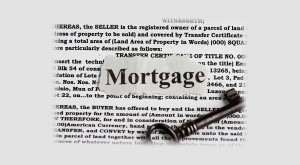
September 30, 2013
FHA Loan Modification Trial Payment Plans-What If The Borrower Fails?
Recently the FHA changed some of its policies related to loss mitigation and foreclosure avoidance on FHA guaranteed home loans. In our last look at these changes, we examine what the latest guidance from the FHA and HUD has to say about borrowers in financial difficulty who cannot or do not successfully navigate a Trial Payment Plan. Borrowers and lenders are advised in Mortgagee Letter 13-32, “If a mortgagor fails to successfully complete a Trial Payment Plan under a Loan Modification or FHA-HAMP, pursuant to 24 C.F.R. § 203.355, mortgagees must still re-evaluate the mortgagor’s eligibility for other appropriate Loss Mitigation Options. If the mortgagor’s circumstances have not changed, the mortgagee must evaluate the mortgagor for FHA Loss Mitigation Home Disposition Options prior to initiating foreclosure.” While the Trial Payment | more...









